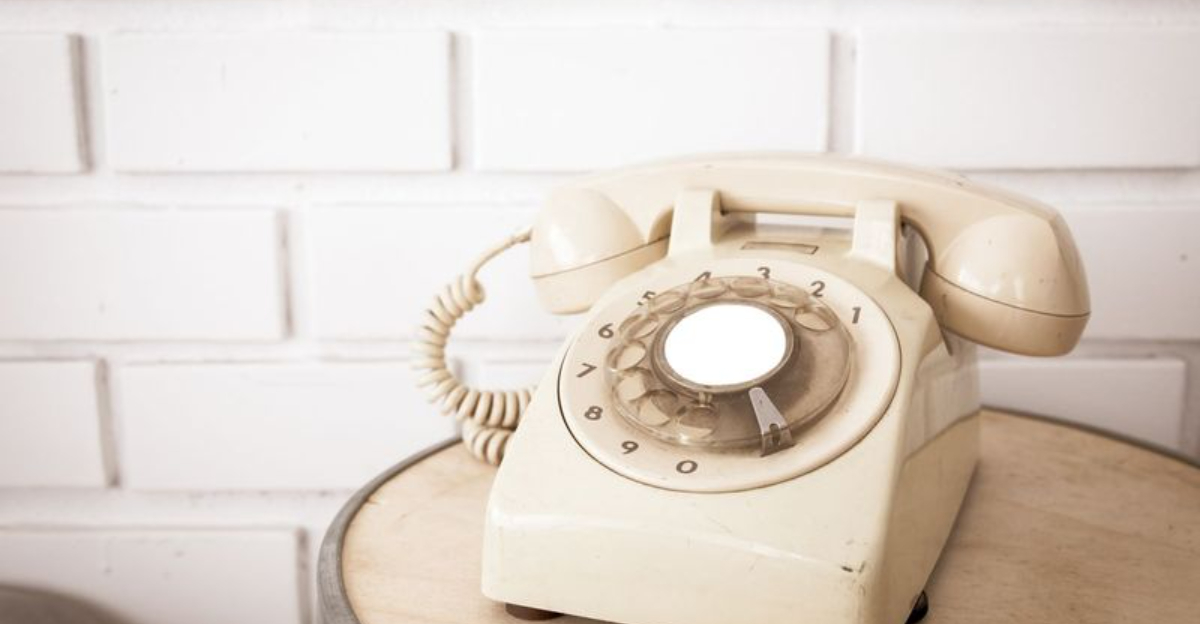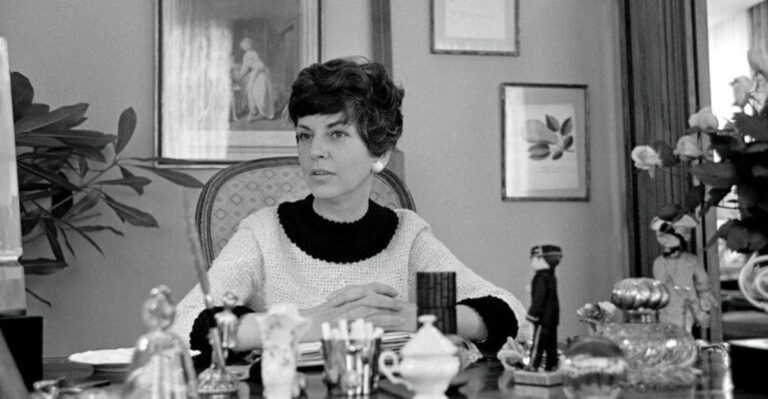20 Things That Disappeared From Society And No One Even Noticed
In our fast-paced world, it’s easy to overlook the little things that quietly fade into obscurity. This blog post explores 20 such aspects of society that have disappeared, often without us realizing it.
From pop culture mainstays to everyday habits, these are the things that were once integral parts of our lives but have now become nostalgic memories. Join us on this journey down memory lane as we explore the quirky, the quaint, and the quietly forgotten.
1. Memorizing Phone Numbers
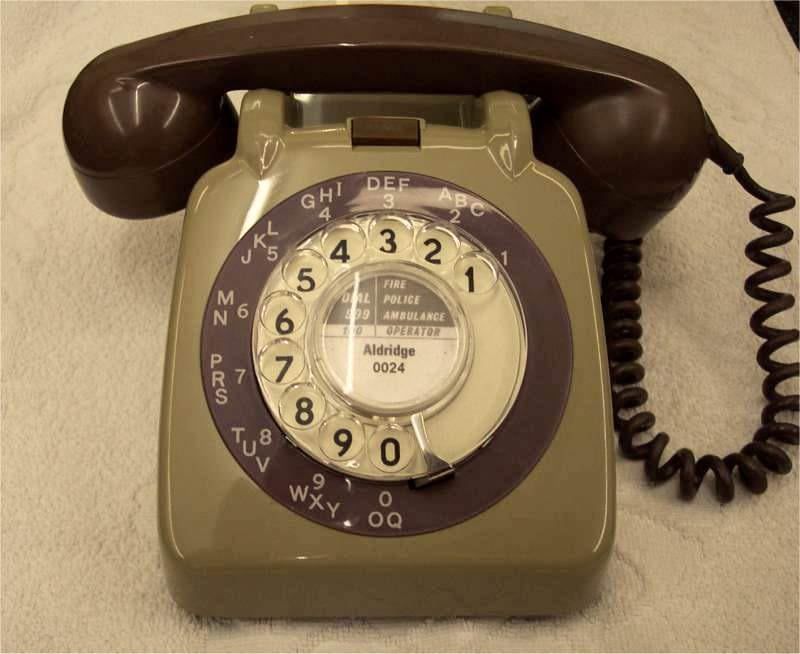
Remember when knowing a phone number was a sign of a true friend? Back in the day, our brains were like mini Rolodexes, filled with the contact details of everyone we knew. It was an era when being unreachable wasn’t a crime but a chance to be present.
Today, our phones do the heavy lifting, while our memories have been freed up to store Netflix passwords. The art of memorizing phone numbers has become as obsolete as the payphone itself. Yet, there was a certain charm in being able to dial a friend’s number from memory.
Now, if you lose your phone, you’re as good as stranded. But once, forgetting a number was just a good excuse to visit a friend.
2. Picking Up a Landline and Not Knowing Who’s Calling
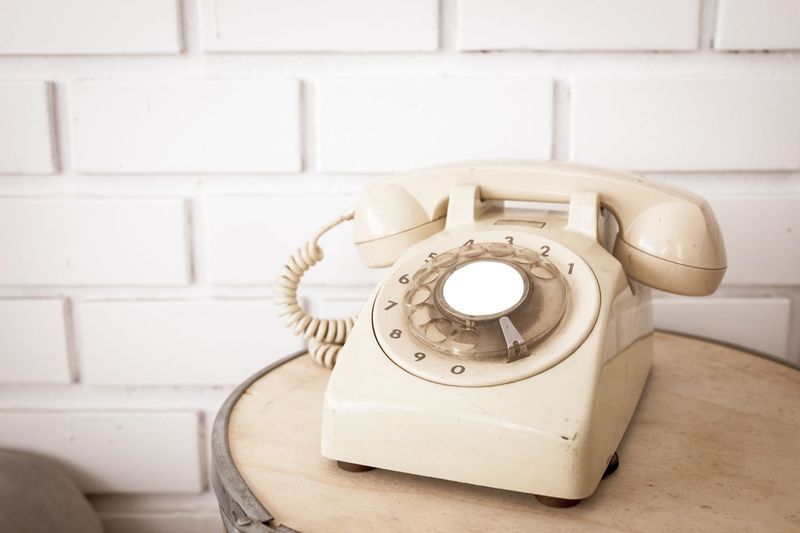
Once upon a time, the ringing of a landline phone was a thrilling mystery. Who could it be? The anticipation was palpable as you picked up the receiver, ready for anything from a long chat to the dreaded telemarketer.
Caller ID, a modern convenience, has stripped away the surprise element. Now, we screen calls like casting directors, deciding who gets a callback. The spontaneity of not knowing who was on the other end is a relic of the past.
Back then, the phone’s ring was an event, a moment of possible magic or mundane routine. Now, it’s just another notification in our digital lives.
3. Letting the Answering Machine Do Its Job
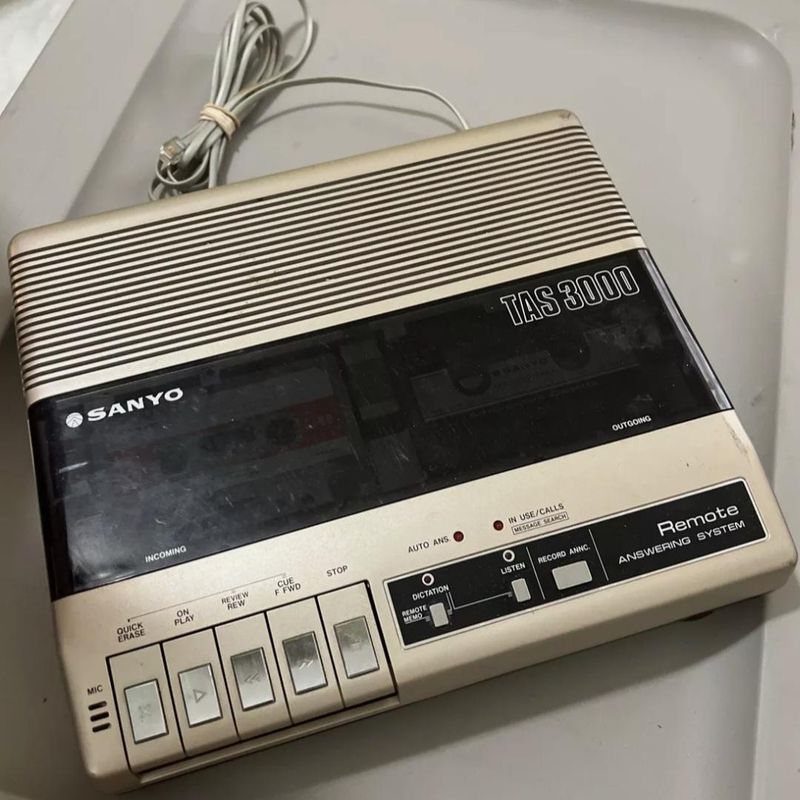
Remember those days when you could let the answering machine pick up, allowing you to stay blissfully ignorant of calls you’d rather avoid? The beep, followed by a voice, was a comforting assurance that you weren’t missing anything important.
Today, voicemail feels like an archaic chore to check, often ignored in favor of text messages. The joy of hearing someone’s voice, leaving a long-winded message, is a bygone pleasure. It was a time when patience was a virtue.
Modern technology may have streamlined communication, but it has also robbed us of the quaint satisfaction of returning a call at our leisure, without the pressure of instant response.
4. Saturday Morning Cartoons as a Shared Event
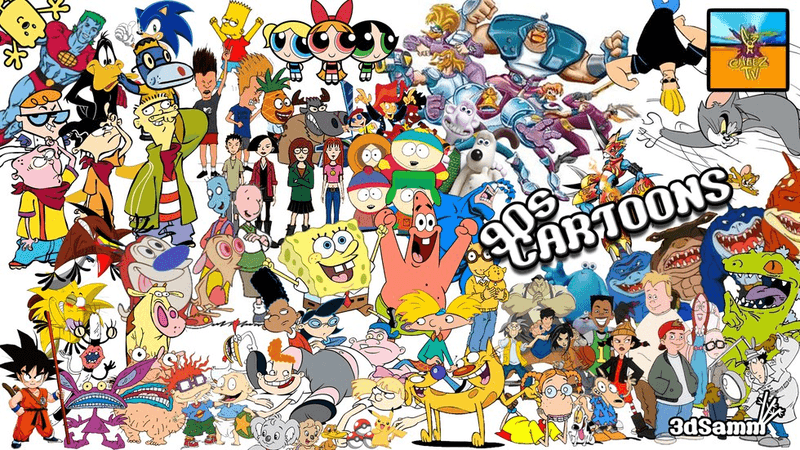
Saturday mornings once held a special magic, as kids across the nation tuned in to their favorite cartoons. It was a time of shared joy, where friendships were forged over discussions of the latest episodes.
Today, the on-demand nature of streaming services has altered this ritual. Kids now watch cartoons on tablets, anytime, anywhere, losing the communal aspect that once defined our weekends. The anticipation of waiting a whole week for a new episode is lost.
Those Saturday mornings were about more than just cartoons; they were a cherished bonding experience. Now, the tradition is a nostalgic memory for those who grew up with it.
5. Hanging Out at the Mall Just to Wander
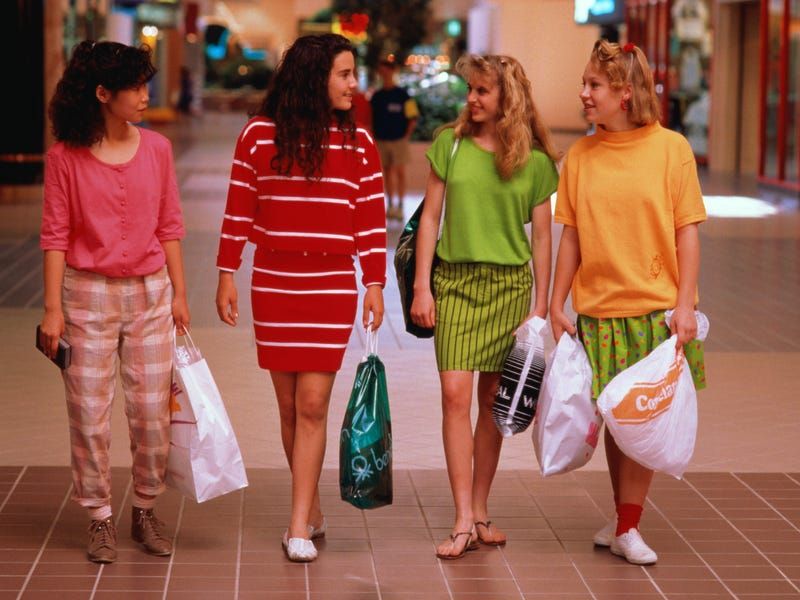
There was a time when hanging out at the mall was the epitome of teenage freedom. No agenda, just wandering through stores, maybe catching a movie, and definitely grabbing a pretzel.
The mall was a social hub, a place to see and be seen, long before social media took over. Now, online shopping has made the mall less essential, turning hangouts into planned outings rather than spontaneous adventures.
Malls were more than shopping centers; they were stages for teenage drama and fashion shows. Those carefree days of roaming aisles without a purpose are now a fond memory, swapped for clicks and carts.
6. Privacy in Public Conversations
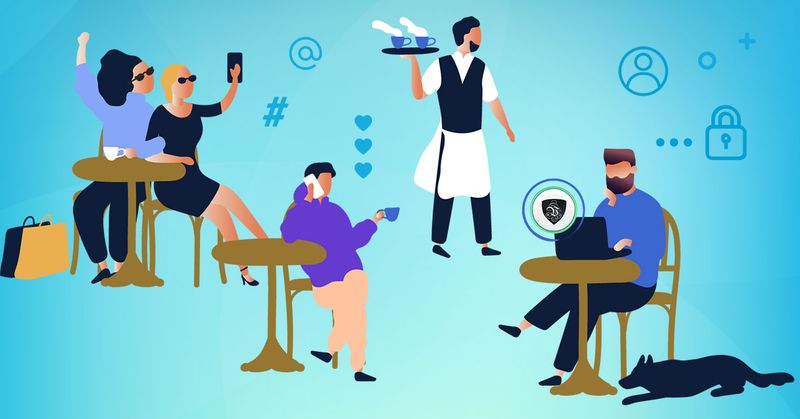
There was a time when having a private conversation in a public space was possible. People spoke in hushed tones, respecting the invisible bubble of privacy around them.
Smartphones, however, have blurred these boundaries. Now, personal conversations happen loudly, often inadvertently shared with anyone within earshot. The irony of seeking privacy in public has become a social norm.
Once, we were conscious of our surroundings, aware of the ears nearby. Today, privacy feels more like a luxury than a default state, as we broadcast our lives without a second thought.
7. Getting Lost Without Panic

Remember the thrill of getting lost and having to rely on a map or ask for directions? It was an adventure, a test of navigation skills and patience.
Now, GPS guides us turn by turn, eliminating the uncertainty of the journey. While it’s convenient, the art of getting lost and finding one’s way has all but disappeared.
The stories of wrong turns and unexpected discoveries are fewer, as technology ensures we’re never off the beaten path. But there was a certain excitement in not knowing exactly where you were, and finding your way back home.
8. Waiting for Film to Get Developed

The click of a camera used to be just the beginning of a story. Waiting for film to develop was an exercise in patience and excitement. Each roll held potential memories, unseen until they were printed.
Today, digital cameras and smartphones offer instant gratification. We snap, swipe, and delete with ease, losing the anticipation that once accompanied photography.
There was an art to photography with film, a mystery in not knowing if you captured the perfect shot. Now, the surprise element is gone, replaced by quick edits and instant uploads.
9. Knowing the Lyrics Because They Were in the CD Booklet
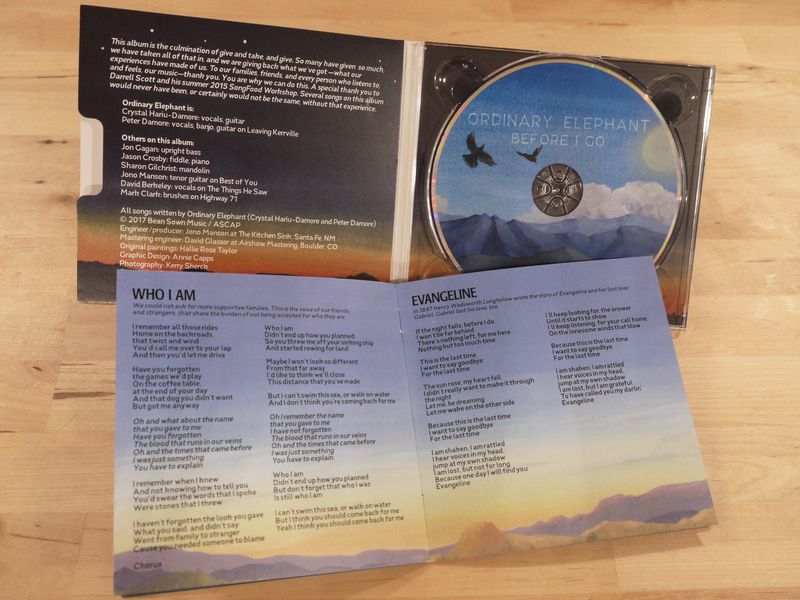
Before lyrics websites, there were CD booklets, meticulously designed with song lyrics and band trivia. Spending hours understanding the words and stories behind favorite tracks was a common pastime.
Today, streaming services have made music more accessible but less personal. The lyrics are just a search away, and the tactile connection to the music is lost.
There was a delight in flipping through a booklet, discovering hidden messages and artwork. Now, the experience is digital, devoid of the tangible joy of owning a piece of the music.
10. RSVPing—And Meaning It

Once, receiving an invitation meant sending a thoughtful RSVP in return, a promise to attend or a polite decline. It was a commitment taken seriously, a matter of etiquette.
Now, social media invites come with a casual click of ‘attending’ or ‘maybe,’ often without much thought. The art of committing to an event has faded, replaced by last-minute decisions.
RSVPs were more than just responses; they were a show of respect and intention. Today, plans change with a text, and the certainty of attendance feels less assured.
11. Having to Knock Instead of Text “Here”

In a world before instant messaging, the only way to announce your arrival was a knock on the door or a ring of the bell. It was an unspoken tradition that signaled you had arrived.
Texting ‘here’ has replaced this gesture, making us less present even when we are right outside. The anticipation of a visit started with the sound of a knock, a cue for the hosts to get ready.
The personal touch of knocking has dwindled in favor of digital alerts, changing the dynamics of greetings and hospitality.
12. Unplugging for Real on Vacation

Vacations were once a time to truly disconnect from the world. No emails, no calls—just pure relaxation and exploration, a chance to live in the moment.
Today, WiFi is as essential as sunscreen, and vacations are documented in real-time on social media. The pressure to stay connected has turned breaks into just another day online.
The art of being fully present, of savoring every experience without digital distractions, is rare. True unplugging is now a nostalgic memory for those who remember its tranquility.
13. Telling Time by TV Schedules

Once, the TV schedule was a household staple, dictating our evenings with a lineup of must-watch shows. It was a communal clock, setting the rhythm of our leisure time.
With on-demand streaming, the urgency to catch a show as it airs has vanished. We watch at our convenience, losing the shared excitement of tuning in together.
The anticipation of waiting for a favorite show was part of the experience, a ritual now replaced by binge-watching. TV schedules are a quaint reminder of a time when entertainment was a shared event.
14. Writing Notes Instead of Texts
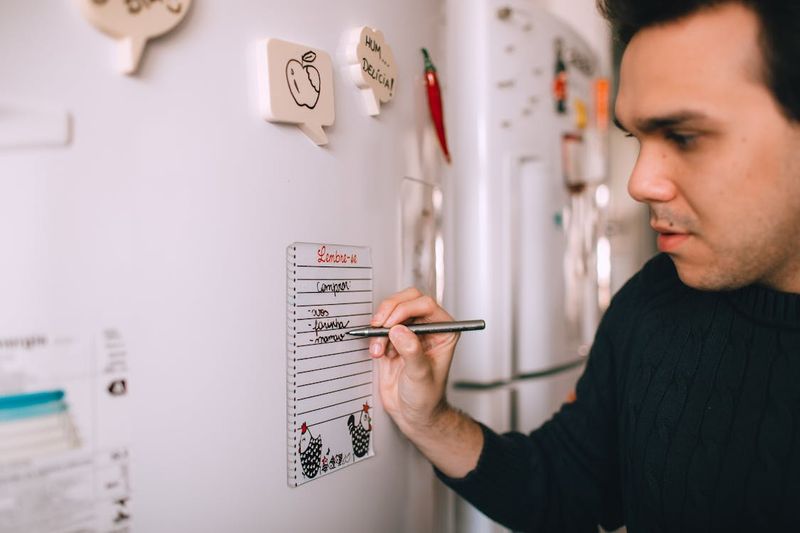
Before texts and emails, writing a note was a gesture of thoughtfulness. Whether a quick reminder or a heartfelt message, handwritten notes conveyed sincerity and personal touch.
Today, digital communication is instant but often lacks the warmth of a penned note. The art of writing by hand, of crafting words with care, is fading.
Notes were tangible, cherished keepsakes, often tucked away and revisited. Now, messages disappear into digital archives, carrying less of the personal connection once shared.
15. Eating Without Snapping a Photo

There was a time when meals were simply enjoyed, not documented. Dining was about savoring flavors, engaging in conversation, and sharing the moment.
The trend of photographing food has turned meals into photo ops, often at the expense of genuine enjoyment. The mantra ‘phone eats first’ has changed how we experience dining.
Eating without the distraction of a camera lens allowed for more authentic interactions and appreciation of the culinary experience. It’s a practice many now look back on with fondness.
16. Flipping Through a Phone Book
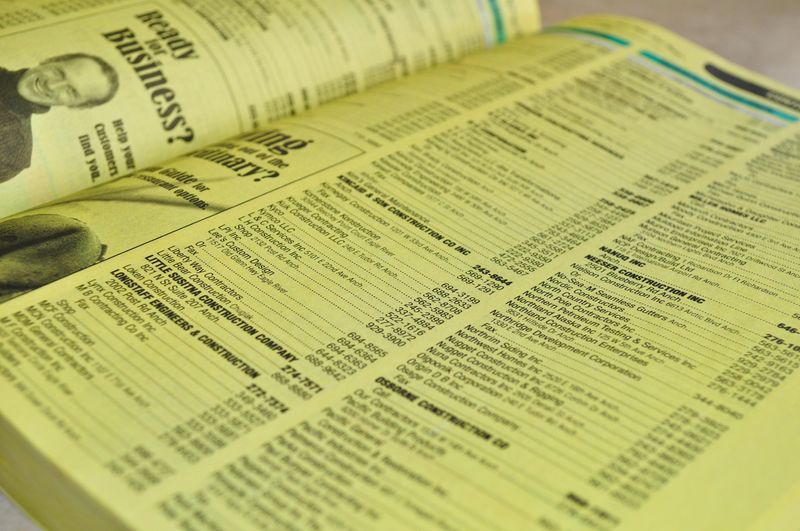
The phone book was once the go-to resource for finding contact information. Flipping through its pages was a tactile experience, a ritual for both business and personal connections.
Today, digital contacts have made the phone book obsolete, a relic of a pre-internet age. The convenience of search bars has replaced the charm of browsing through names and numbers.
The act of flipping through a phone book was a moment of discovery, a connection to the wider world, now replaced by digital ease.
17. Family Dinners Without Background Noise

Dinner time was once a sacred family ritual, free from the hum of televisions and pings of phones. Conversations flowed, and connections were built over shared meals.
Today, screens are often the uninvited guests at the table, pulling attention away from each other. The quality time once enjoyed is now frequently interrupted by digital noise.
The simplicity of dining together, focusing solely on each other, is a cherished memory for many. It’s a practice that has quietly faded, replaced by multitasking meals.
18. Apologizing in Person

There was a time when apologies were made face-to-face, with words spoken sincerely and emotions laid bare. It was a moment of vulnerability and connection.
Today, apologies often arrive via text or email, stripped of physical presence and emotional nuance. The ease of digital communication has changed how we express regret.
The art of a heartfelt apology in person is fading, as convenience overtakes personal interaction. Yet, those who remember it know the true power of a spoken ‘I’m sorry.’
19. Keeping Opinions to Yourself

Once, people kept their opinions to themselves or shared them in intimate settings. Thoughts were penned in diaries or exchanged in personal conversations.
Social media has transformed opinion sharing into a public spectacle, with every thought broadcasted to the world. The quiet reflection of private musings is now a rarity.
The discretion of keeping opinions close was a form of self-restraint, a practice that feels lost in today’s digital age. It was about knowing when to speak and when to listen.
20. Knowing When Not to Reply All

Email etiquette once required careful consideration before hitting ‘Reply All.’ It was an unwritten rule, respected by those who understood the importance of relevance.
Now, the convenience of instant communication has blurred these boundaries, leading to inboxes flooded with unnecessary replies. The art of selective responding is often overlooked.
Knowing when to reply all was about understanding context and audience, a skill that has become undervalued in the digital era. It’s a practice that maintained clarity and minimized chaos.

